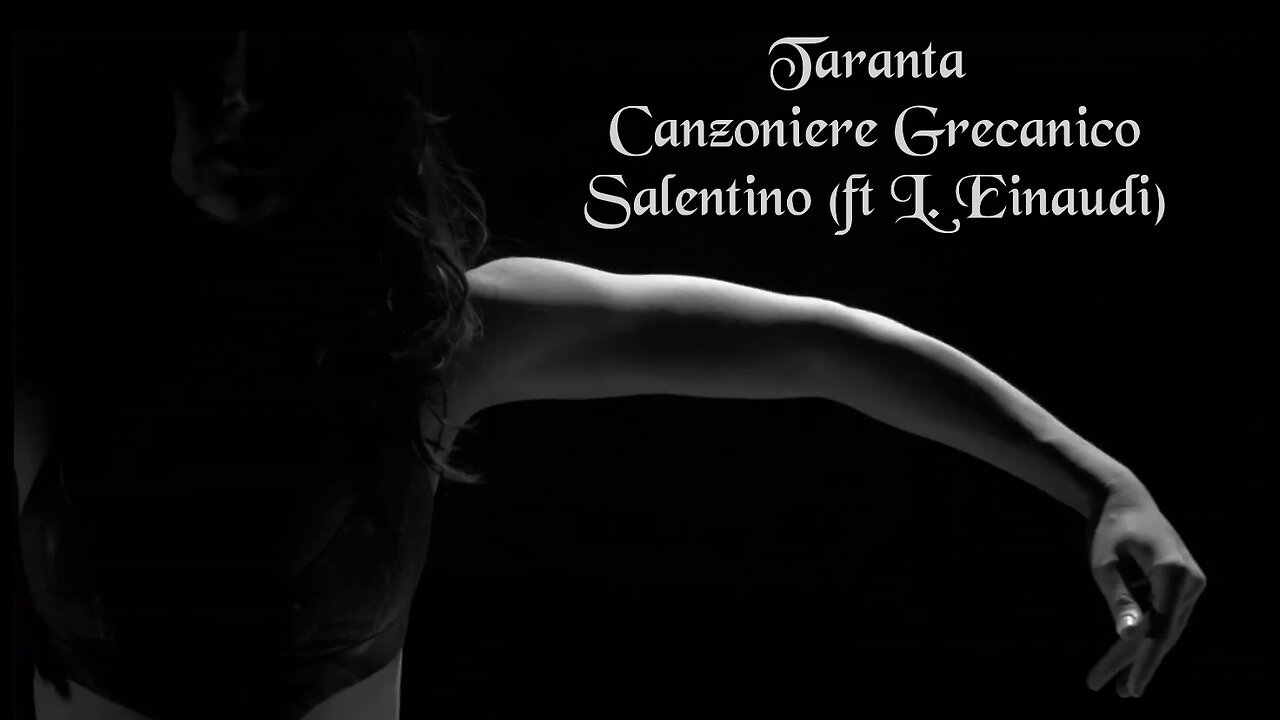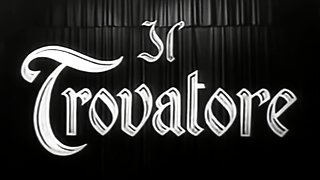Premium Only Content

Taranta - Canzoniere Grecanico Salentino (ft L. Einaudi)
Canzoniere Grecanico Salentino (CGS), formed by writer Rina Durante in 1975, is a traditional music ensemble from Salento, Italy. The seven piece band and dancer perform a contemporary style of Southern Italy's traditional Pizzica music and dance.
In the Italian province of Taranto (taking its name from Tarantas), Apulia, the bite of a locally common type of wolf spider ("Lycos" in Greek means "wolf"), named "tarantula" after the region, was popularly believed to be highly venomous and to lead to a hysterical condition known as tarantism. This type of dance became known as the "tarantella". The dance is believed to be a survival from a "Dianic or Dionysiac cult", driven underground. In 186 BC the tarantella went underground, reappearing under the guise of emergency therapy for bite victims.
The stately courtship tarantella danced by a couple or couples, short in duration, is graceful and elegant and features characteristic music. On the other hand, the supposedly curative or symptomatic tarantella was danced solo by a victim of a Lycosa tarantula spider bite (not to be confused with what is commonly known as a tarantula today); it was agitated in character, lasted for hours or even up to days, and featured characteristic music. However, other forms of the dance were and still are dances of couples usually either mimicking courtship or a sword fight. The confusion appears to derive from the fact that the spiders, the condition, its sufferers (tarantolati), and the dances all have names similar to the city of Taranto.
The dance originated in the Apulia region, and spread throughout the Kingdom of the Two Sicilies. The Neapolitan tarantella is a courtship dance performed by couples whose "rhythms, melodies, gestures, and accompanying songs are quite distinct" featuring faster more cheerful music. Its origins may further lie in "a fifteenth-century fusion between the Spanish Fandango and the Moresque ballo di sfessartia". The "magico-religious" tarantella is a solo dance performed supposedly to cure through perspiration the delirium and contortions attributed to the bite of a spider at harvest (summer) time. The dance was later applied as a supposed cure for the behavior of neurotic women (carnevaletto delle donne).
The tarantella is a dance in which the dancer and the drum player constantly try to upstage each other by playing faster or dancing longer than the other, subsequently tiring one person out first. Tarantism, as a ritual, is supposed to have roots in the ancient myths. Reportedly, victims who had collapsed or were convulsing would begin to dance with appropriate music and be revived as if a tarantula had bitten them. The music used to treat dancing mania appears to be similar to that used in the case of tarantism though little is known about either.
TARANTA
(lyrics: M. Durante / music: L. Einaudi, M. Durante)
Mauro Durante: violin, tamburello, backing vocals
Giulio Bianco: recorders, bagpipes, harmonica, flutes, bass
Emanuele Licci: vocals, guitar, bouzouki
Massimiliano Morabito: organetto
Giancarlo Paglialunga: vocals, tamburello, bendir, tapan
Alessia Tondo: vocals, castanets, percussion
Lyrics in English:
I hold anguish in my chest
this is killing me and never stops
the ground is trembling under my feet
there’s no stopping me falling
what I eat has no taste
for me there is no more light nor color
people knew how you had to cure yourself
If your ilness was called taranta
And now that times have changed
who can feel my pain
who brings me the water to cure
who shall I ask to grant me recovery
I don’t know if it’s taranta that got me
but it doesn’t let me and makes me crazy
if it’s taranta don’t abandon me
if you dance alone you cannot heal
if it’s taranta let her dance
if it’s melancholy throw it out
-
 1:37:27
1:37:27
Adaneth - Arts & Literature
15 days agoIl Trovatore - Salvarezza, Sacchi, Mascherini, Pederzini - Santini, Gallone (Opera Film 1949)
551 -
 LIVE
LIVE
Joker Effect
1 hour agoFIRST EVER AMATEUR BOXING EVENT STREAMED ON RUMBLE! BOUGHT TO YOU BY WOLFSDEN BOXING!
1,745 watching -
 39:20
39:20
Rethinking the Dollar
2 hours agoTechnocratic World Order: Elon Steps Aside As Palantir Steps In | RTD News Update
7.08K9 -
 52:39
52:39
vivafrei
4 hours agoA Soldier's Journey Home: Sergeant First Class New Home Reveal LIVE!
49.3K7 -
 LIVE
LIVE
Major League Fishing
1 day agoLIVE MLF BFL All-American Championship!
1,340 watching -
![🔴 Live - [ 36 Hr Marathon ]](https://1a-1791.com/video/fww1/7d/s8/1/z/G/-/O/zG-Oy.0kob-small--Live-36-Hr-Marathon-.jpg) LIVE
LIVE
Delnorin Games
5 hours ago🔴 Live - [ 36 Hr Marathon ]
157 watching -
 LIVE
LIVE
Total Horse Channel
18 hours ago2025 Buckeye Reining Spectacular - Saturday
122 watching -
 3:10:55
3:10:55
DrDamon
4 hours ago🟢 LIVE - Degen Gaming with Chat! | Use Code: "DRDAMON" #EpicPartner
14.5K -
 2:11:43
2:11:43
I_Came_With_Fire_Podcast
13 hours agoCIA Spy EXPOSES NSA's Largest DOMESTIC Spy Program EVER
17.9K11 -

Astral Doge Plays!
6 hours agoFinal Fantasy VII ~LIVE!~ Nibelheim
8.03K